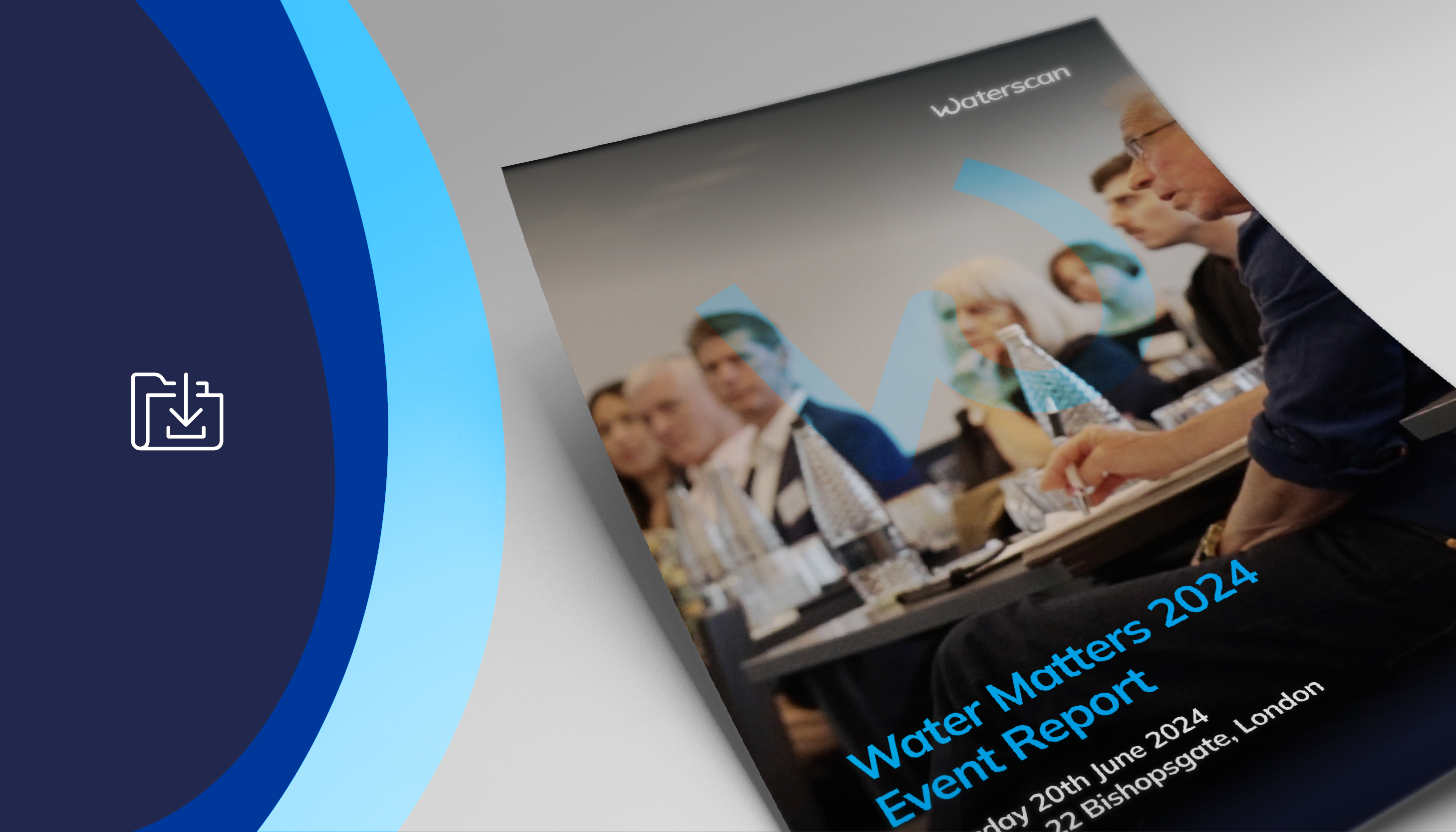Water in business: from commitments to transformation.
Panel speakers:
- Arati Davis – Sweden-India Business Council (CEO) (Panel Host)
- Sharif Hoque – H&M Group (Impact Lead)
- Caroline Black – World Resources Institute (Research Analyst)
- Federico Properzi – UN Water (Chief Technical Advisor)
A fascinating panel session exploring the new perspectives that came from the UN Water Conference in March 2023. Discussions focused on the voluntary commitments that came out of the UN conference, the potential for mandatory commitments, possible alignment of reporting tools as well as the critical importance of finance models and their availability, plus collaboration.
Session focus with Jess Wyatt

This session showed me that we clearly need to collaborate to take effective action on water, emphasising the need for accurate data sets, investment, and alignment on reporting. Conferences like World Water Week are a facilitator of this, however, more needs to be done to act on water issues, “the conventional way of conservation and water efficiency isn’t good enough – urgent action is needed in collaboration with the climate agenda” Sharif Hoque from the H&M Group commented.
We need to appreciate the issues are both global and local, and businesses need to work together alongside other stakeholders to make a real impact.
Key takeaways:
- Not many businesses have standalone water commitments – they are generally synergetic through things like CDP.
- The linear model of taking water, using it and then discharging it needs to change. Innovation and access to finance are needed to help value chains decouple water intake.
- Analogy of “if climate change is the shark, water is its teeth” – as a community we need to show they are linked, and that climate resilience is water resilience.
- There needs to be more changemakers – one actor can’t take on water issues alone, more people need to come together to collaborate in different areas.
Key statistics:
- During the UN 2023 Water Conference, 836 voluntary commitments were made – 45% of these were from NGOs, 26% from government, 11% from multilateral organisations and a small number from businesses. Only 26% of these commitments had a clear definition of its funding source.
- 60% of freshwater resources are transboundary – this emphasises the importance of a high level overview with local insights.
- WRI analysis has found that only 1% of GDP is needed in order to achieve global water security (“Achieving Abundance“).
Commitments
H&M called for commitments to be mandatory, “voluntary commitment isn’t good enough as we need many more businesses to take action.” Federico Properzi from UN Water argued that for now the voluntary commitments are good enough “this is the first online public list of commitments covering several sectors and stakeholders. It is now up to us to make the best of this and look to fill the gaps. Voluntary commitments will inspire more action.” Although over 800 voluntary commitments have been set, these need to be evaluated, measured and monitored and the funding sources need to be clarified.
Frameworks
Questions were raised on the frameworks that could be used for the delivery of a collaborative approach, accurate data sets and reporting. Carbon Disclosure Project (CDP) and Task Force on Climate-related Financial Disclosures (TCFD) were mentioned as potential key components.
Various other initiatives that are trying to align multiple frameworks were mentioned during the panel session, for example the 100 basins initiative, the Alliance for Water Stewardship’s Impact Accelerator and the collective action projects that WWF have helped highlight.
However, it remains obvious that there are lots of different tools available and clear guidance is needed on what they’re all for and how they can be used to add value. A standardisation of tools would certainly improve understanding in this area.
Customer relevance
Undoubtedly the discussion around all the different reporting frameworks and tools was of most relevance to our customers and other UK businesses. H&M highlighted that it’s difficult for businesses to know how to fit into these frameworks and indeed how they fit together. Definitions differ, water consumption and reporting methods for example, and there needs to be alignment between them otherwise businesses will struggle to focus on what is needed.
Collaboration with other businesses and stakeholders is critical, and a second key point of relevance.
Innovation angle
H&M’s view was very interesting. They see that urgency is pushing them towards innovation and the need to objectively look at areas to act and innovate. The comment that struck home for me was “the way we conventionally use water in the value chain can’t continue and we want to decouple water from fashion”, assessing waterless dying and innovations to reduce water and chemicals in production are “on a cycle of research, piloting and investing.”
Wrap up
Whilst some of the panel seem to believe government regulation is important and voluntary initiatives like CDP, while successful, may not go far enough, there was little substance to how this could be achieved. Business commitments via CDP and TCFD are highly effective and deliver results and show what can be done. Making the business case for investment can be difficult, particularly for long term projects such as greywater and wastewater recycling, but it could unlock the funding needed to deliver the ambitious targets for reduction.




